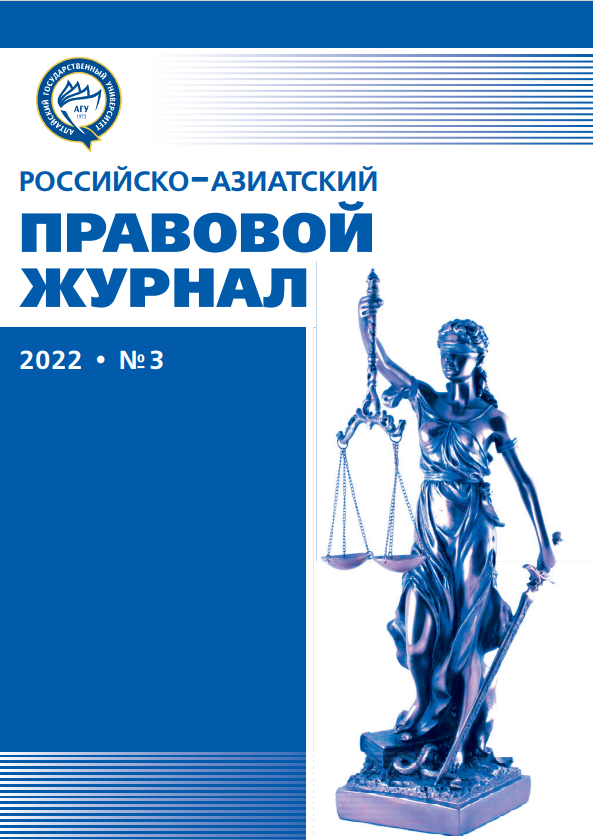INTERNATIONAL LEGAL FRAMEWORK FOR ENSURING GENDER EQUALITY AND ANTI–DISCRIMINATION REGULATIONS: GENERAL ISSUES
УДК 341.1/8 ББК: 67.91
Abstract
The purpose of the article is to show and analyze the vector of the latest approach to the internationallegal regulation of the institution of women’s rights. The authors note constructive attempts to strengthenthe legal status of women in modern society at the level of UN conventions and declarations. The authors come to the conclusion that in modern international human rights law, as well as in thelaw-making and human rights activities of the UN, there is a tendency towards a more detailed regulationof certain social, economic, cultural, political and other rights of women on a democratic basis, whichcontributes to combating discrimination in regarding women.The article shows that the negative external factors caused by pandemics and cataclysms weaken thespeed of decision-making in the development of the legal policy of gender equality. Today we have to observea situation that is characterized by an abundance of international standards in the field of gender equality,but at the same time the achievement of gender equality remains a very slow process.
Downloads
References
2. Толстых В.Л. СOVID-19 и международное право: общие вопросы // Московский журнал международного права. 2021. №3. С. 87–94.
3. Peters Anne. Die Pandemieund das Völkerrecht (The Pandemic and Public International Law) (February 9, 2021) // Max Planck Institute for Comparative Public Law & International Law (MPIL) Research Paper No. 2021. 03. P. 43.
4. Конвенция о ликвидации всех форм дискриминации в отношении женщин // Права человека. Сборник международных документов. М., 1986. С. 126–144.
5. Генеральная Ассамблея Организации Объединенных Наций. Специальные сессии. URL: http://www.un.org/ru/ga/sessions/special. shtml#22spec (дата обращения: 22.03.2022).
Russian-Asian Law Journal is a golden publisher, as we allow self-archiving, but most importantly we are fully transparent about your rights.
Authors may present and discuss their findings ahead of publication: at scientific conferences, on preprint servers, in public databases, and in blogs, wikis, tweets, and other informal communication channels.
Russian-Asian Law Journal allows authors to deposit manuscripts (currently under review or those for intended submission) in non-commercial, pre-print servers such as ArXiv.
Authors who publish with this journal agree to the following terms:
- Authors retain copyright and grant the journal right of first publication with the work simultaneously licensed under a Creative Commons Attribution License that allows others to share the work with an acknowledgement of the work's authorship and initial publication in this journal.
- Authors are able to enter into separate, additional contractual arrangements for the non-exclusive distribution of the journal's published version of the work (e.g., post it to an institutional repository or publish it in a book), with an acknowledgement of its initial publication in this journal.
- Authors are permitted and encouraged to post their work online (e.g., in institutional repositories or on their website) prior to and during the submission process, as it can lead to productive exchanges, as well as earlier and greater citation of published work (See The Effect of Open Access).








